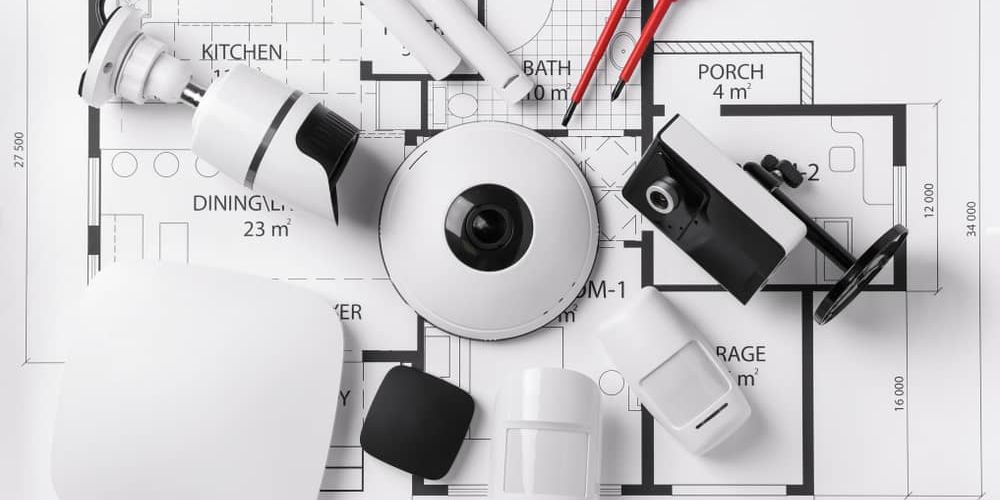stay up to date
Wired vs Wireless Security Cameras

Choosing the Right Option for Your Home
Wired vs. Wireless: The Basics
Deciding between wired vs wireless security cameras is one of the bigger decisions when installing a camera surveillance system on your property.
Both have pros and cons, and it ultimately comes down to personal preference and specific needs. Here are some basics to keep in mind:
Wired Security Cameras
Wired security or cctv cameras are popular for those prioritising reliability and stability. These cameras are connected to a Network Video Recorder and transmit data through a physical cable, typically an Ethernet CAT5 or CAT6 cable. Coaxial cable is no longer used. This wired connection ensures a consistent and uninterrupted stream of footage, making it ideal for high-security areas.
Electricians are not required.
Wired security cameras require minimal maintenance and provide a dependable security solution once installed.
Wired security cameras are also more secure than their wireless counterparts as they are less susceptible to interference from other devices as well as hacking attempts.
Overall, wired security cameras provide the most reliable and secure option for those looking to protect their property. They may require a bit more effort to install, but the peace of mind they provide is worth it for many homeowners and business owners.
Pros
- Reliability: Wired cctv cameras are more reliable than wireless cameras because they do not rely on a Wi-Fi signal to transmit footage.
- No drop in signal: Wired cameras do not experience a drop in signal or interference, which can happen with wireless cameras.
- Better quality videos: Wired cameras generally produce higher quality videos than wireless cameras.
- No wiring or cords: Wired security cameras do not require extension wiring or cords, as they can be powered through PoE (Power over Ethernet) technology.
Cons
- Placement limitations: Cameras need to be hardwired, which can limit their placement options.
- Not easy to move: Wired cameras cannot be easily moved once installed.
Wireless Security Cameras
Wireless security cameras have become increasingly popular due to their ease of installation and flexibility.
Unlike wired cameras, wireless cameras do not require a physical connection to a recording device or power source, making them more versatile in terms of placement.
Wireless cameras are typically powered by batteries, which means they can be placed almost anywhere without worrying about power outlets or wiring. However, it is important to note that batteries must be charged or replaced periodically, which can require extra effort or be an ongoing expense.
Wireless cameras typically use wireless protocol to transmit footage to a recording device or cloud storage. This means a stable internet connection is necessary for the cameras to function properly. It is also important to ensure that the cameras are placed within range of the wireless hub they use to connect to the network.
Wireless cameras have various styles and features, including motion detection, night vision, and two-way audio. Some cameras also offer facial recognition technology and the ability to store footage locally or in the cloud.
Overall, wireless security cameras offer a convenient and flexible option for home security. However, it is important to consider the ongoing battery replacement cost and ensure a stable internet connection for optimal performance.
Pros
- Flexibility: Wireless cctv cameras can be placed anywhere within range of the hub or access point, providing more flexibility in terms of placement.
- No wiring: Wireless cameras do not require any wiring, making them easier to install.
- Easy to move: Wireless cameras can be easily moved from one location to another.
Cons
- Less Quality: Lower-quality videos compared to hard wired cameras.
- Signal interference: Wireless surveillance cameras can experience interference from other devices or obstacles, such as walls, which can affect the reliability of the footage.
- Susceptible to hacking: Wireless security cameras can be susceptible to hacking, which can compromise the security of the footage.
Choosing the Right Option for You
Both options offer the convenience of remote monitoring, allowing you to check in on your home or business from anywhere using your mobile device. Most wired systems can provide back-to-base monitoring for extra security.
It’s also important to consider the types of notifications and available sensors. Some cameras offer motion sensors that trigger alerts when movement is detected, while others may provide facial recognition technology or other advanced features.
Both options have advantages and disadvantages; what works well for one situation may not be the best fit for another.
Ultimately, the decision between wired and wireless security cameras will depend on your needs and the type of property in which the camera system will be installed. If unsure, you can book a free onsite consultation with a security industry expert on 1300 010 180 to help you decide.
request a quote
Make an Enquiry
Or fill out the form below and we will be in touch.

